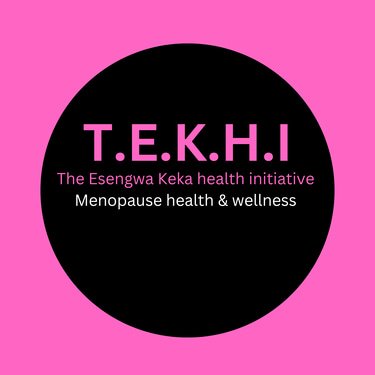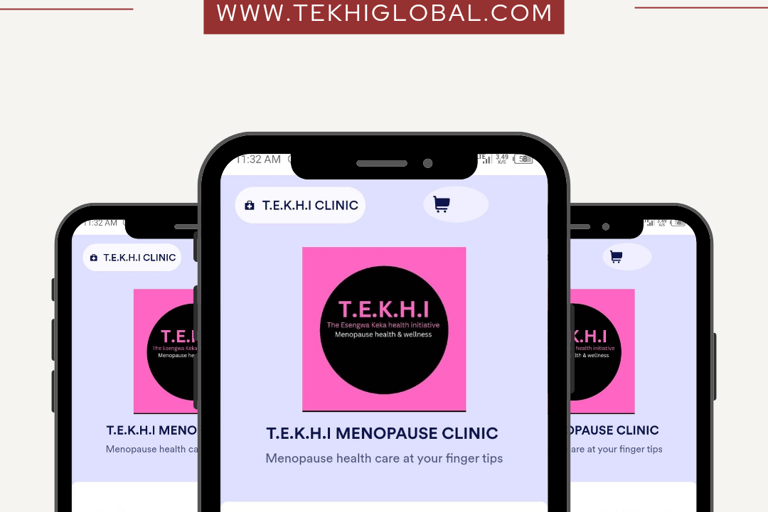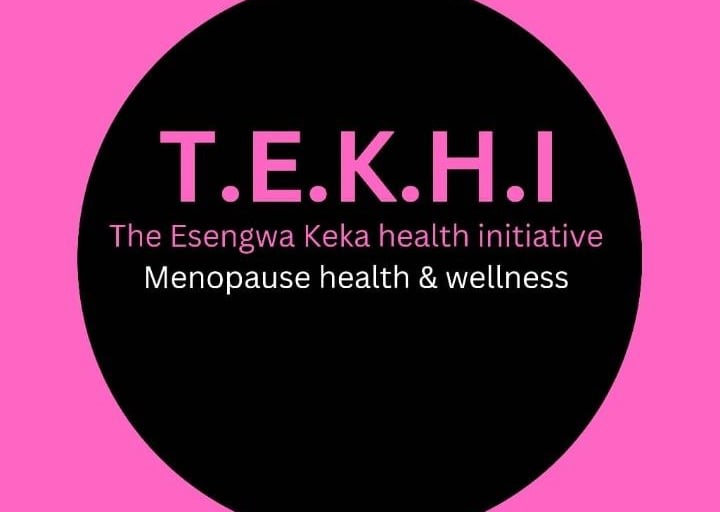Hysterectomy (womb removal) and Premature Menopause: Consequences, Impact on Quality of Life, and Health Support at Tekhi Clinic
Hysterectomy (womb removal) is a major cause of premature menopause (onset of menopause symptoms before 40 years of age) Women who have had a hysterectomy experience severe symptoms like hot flashes, brain fog, sleep problems, bond pains , palpitations because of the sudden declination of oestrogen levels. This has significant impact in the life of women post hysterectomy because little counselling is done before surgery about the occurrence of "premature menopause" and very little menopause clinical & holistic care is available in Cameroon and most African countries. Read this blog to learn more on the relationship between hysterectomy and premature menopause. You will also learn about the available help at TEKHI clinic.


The Connection Between Hysterectomy and Premature Menopause
A hysterectomy is a surgical procedure that involves the removal of a woman’s uterus. Depending on the medical condition being treated, it may also involve the removal of other reproductive organs such as the ovaries (oophorectomy) and fallopian tubes (salpingectomy). Premature menopause, defined as menopause occurring before the age of 40, can be a consequence of such surgical interventions.
Premature menopause occurs when the ovaries fail to produce sufficient amounts of estrogen and progesterone, hormones essential for the regulation of the menstrual cycle and various other bodily functions. If both ovaries are removed during a hysterectomy, known as a bilateral oophorectomy, the body abruptly stops producing these hormones, leading to an immediate onset of menopause. This abrupt hormonal change can precipitate a range of menopausal symptoms such as hot flashes, night sweats, mood swings, and vaginal dryness.
Even when the ovaries are preserved, some women may still experience premature menopause post-hysterectomy. The cessation of menstruation post-surgery means reduced blood flow to the ovaries, which can lead to diminished hormone production over time. Studies indicate that women who undergo hysterectomy, with or without oophorectomy, have a higher likelihood of entering menopause earlier than those who do not have the procedure.
Statistics reveal that about 15% of women aged 30-39 and 45% of women aged 40-44 undergo hysterectomies. Among these, approximately 40-50% may experience premature menopause if the surgery involves oophorectomy. Recognizing the symptoms of premature menopause is crucial for timely management. Women should watch for common menopause indicators such as irregular periods (if pre-surgery), sleep disturbances, and changes in sexual function.
The incidence of premature menopause post-hysterectomy illuminates the necessity for a thorough preoperative discussion between patients and healthcare providers regarding the potential long-term hormonal impacts. This information equips women with the knowledge to make informed decisions and prepare for the changes in their health and quality of life.
Consequences of Premature Menopause and Its Impact on Quality of Life
Premature menopause, particularly following a hysterectomy, can have profound consequences on various aspects of a woman's health and overall quality of life. One of the most immediate and noticeable impacts is the emergence of physical symptoms. Women who undergo premature menopause may experience hot flashes, night sweats, and vaginal dryness. These symptoms can significantly disrupt daily activities, sleep patterns, and intimacy, contributing to a decline in physical well-being.
Emotional and psychological impacts are also prominent among those who face premature menopause. Mood swings, anxiety, and depression become more prevalent due to significant hormonal changes. These emotional challenges can hinder social interactions, professional engagements, and relationships, thereby affecting an individual's mental health and social life. Coping with these changes requires comprehensive emotional support and, in some cases, professional counseling to help navigate these turbulent times effectively.
Beyond immediate symptoms, there are critical long-term health risks associated with premature menopause. Osteoporosis, a condition characterized by weakened bones, becomes a significant concern due to the accelerated decline in estrogen levels, which plays a crucial role in maintaining bone density. This increased risk of fractures can drastically impede mobility and independence in older age. Additionally, cardiovascular disease risks escalate post-menopause, as estrogen is vital in promoting healthy blood vessels and heart function. The heightened risk of heart disease necessitates vigilant medical monitoring and lifestyle adjustments to mitigate these dangers effectively.
The overall impact of premature menopause on quality of life cannot be understated. Intimate relationships and sexual health are particularly affected due to changes in libido and physical discomfort, making open communication and medical interventions important. Understanding and addressing these multifaceted consequences are crucial in ensuring that women receive the comprehensive support they need. Treatments, lifestyle changes, and holistic care approaches provided by specialized clinics like Tekhi Clinic can greatly enhance the management of these challenges, helping women maintain their well-being and quality of life despite the hurdles posed by premature menopause.
Health Support Available at Tekhi Clinic for Premature Menopause
Tekhi Clinic is dedicated to providing comprehensive care for women experiencing premature menopause. Recognizing the multifaceted nature of menopause and its potential impact on physical, emotional, and mental health, Tekhi Clinic offers an array of specialized menopause care services tailored to meet individual needs. One of the standout features of Tekhi Clinic's approach is the convenience of accessing these services from the comfort of your home via their advanced mobile application.
The clinic provides a wide range of support options, including both hormonal and non-hormonal treatments. Hormonal treatments may involve hormone replacement therapy (HRT), which aims to balance hormone levels and alleviate symptoms such as hot flashes, night sweats, and vaginal dryness. For those who prefer or require non-hormonal treatments, Tekhi Clinic offers alternative therapies, including dietary supplements and prescription medications specifically designed to manage menopause symptoms.
Additionally, Tekhi Clinic emphasizes the importance of lifestyle modifications in managing premature menopause. Their experts provide personalized guidance on nutrition, exercise, and stress management techniques to help improve overall well-being and quality of life. They understand that emotional well-being is just as crucial, offering robust mental health support through counseling services and support groups, ensuring that women do not face these changes alone.
The effectiveness of Tekhi Clinic's services is evidenced by numerous patient testimonials and case studies. Patients express how the clinic has significantly aided them in managing symptoms and improving their quality of life. For instance, one patient shared how the combined hormonal therapy and mental health support transformed her perspective and daily functioning, while another highlighted the invaluable dietary advice that helped in controlling her symptoms naturally.
To ensure easy access to these invaluable resources, Tekhi Clinic has developed a user-friendly mobile application. Users can download the app from their respective app stores, register by following a simple step-by-step process, and schedule virtual consultations with specialists. The mobile app also serves as a platform for accessing educational materials, tracking treatment progress, and connecting with support groups, making comprehensive menopause care accessible with just a few taps.




